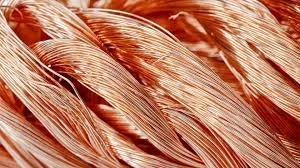Metal resistance must be overcome by the power source for an electrical current to pass through it. A metal has better electrical conductivity the lower it is level of resistance. Additionally, Copper Wire is an excellent electrical conductor because of its low resistance.
Copper is also a very flexible material. Heavy electrical loads must be handled simultaneously by electrical connectors and cables, yet the bulk of the metals that carry these loads are rigid and difficult to bend. Copper, on the other hand, can still be moved with ease and is the ideal thickness for managing household levels of power.
Lastly, compared to other metals, copper is less oxidative. Oxidation is a term that is frequently used for rust. It takes place when the surface of a metal reacts with the oxygen and moisture in the air. The metal corrodes as a result of this reaction, creating a film-like layer.
Copper doesn\'t rust, although it can acquire a bluish-green patina called copper oxide. But unlike rust, this coating shields the metal from corrosion without compromising conductivity.
Copper is one of the best metals for use in electrical transmissions because, in addition to its other mechanical attributes, it has great corrosion resistance. Because it doesn\'t corrode and has a low reactivity series, it can be utilised in wires, pipes, and even radiators.
Due to its extraordinary ductility, copper may be pulled into a wide variety of shapes, including wires, strips, strands, and others. Because of its adaptability, copper wire is used in industrial and residential situations where there are significant electrical load transfers. Due to its versatility in design, it is commonly employed as the primary component in various appliances.



